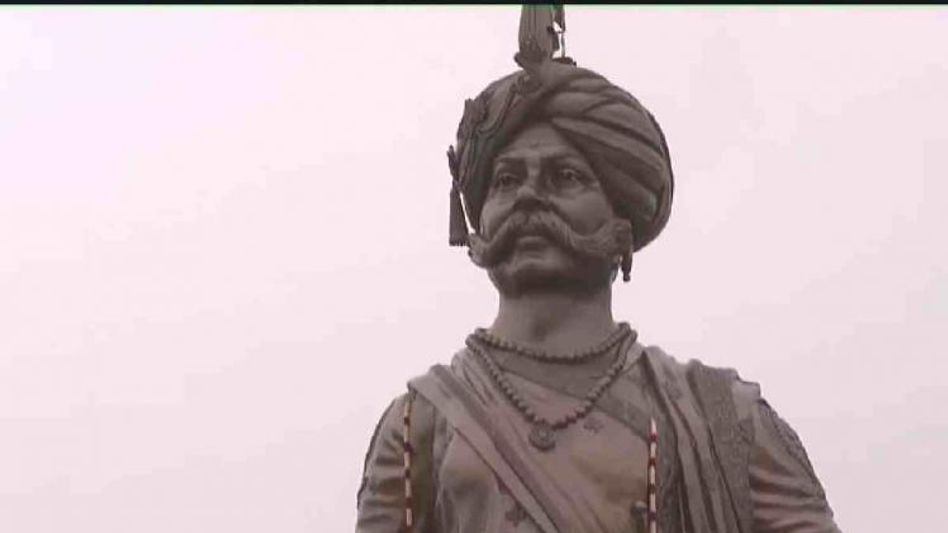PM Modi inaugurates 108-foot-tall statue of Nadaprabhu Kempegowda, who is Nadaprabhu Kempegowda?
Prime Minister Narendra Modi on November 11 inaugurated a statue of Nadaprabhu Kempegowda at Bengaluru's Kempegowda International Airport
 108-foot-tall statue of Nadaprabhu Kempegowda
108-foot-tall statue of Nadaprabhu KempegowdaPrime Minister Narendra Modi on November 11 inaugurated a statue of Nadaprabhu Kempegowda at Bengaluru's Kempegowda International Airport.
The 108-foot-tall bronze monument was built to commemorate Nadaprabhu Kempegowda, the city's founder.
Nadaprabhu Kempegowda ruled the Vijayanagara Empire in the 16th century. In 1537, he is credited with laying the basis for what is now known as Bengaluru city. In portions of southern Karnataka, the chieftain is venerated, particularly among the Vokkaliga group, which is strong in Old Mysuru.
The monarch is said to have had the notion to establish a new city while out hunting with his minister and counselor. In the envisioned city, Nadaprabhu Kempegowda intended to build temples, a fort, water tanks, and a cantonment. According to legend, the chieftain erected the Bangalore Fort and town in AD 1537 after gaining permission from Emperor Achyutharaya, according to the reports.
Aside from setting the groundwork for Bengaluru and contributing to its growth, Nadaprabhu Kempegowda prohibited the practice of chopping the fingers of an unmarried woman's left hand during a tradition known as Bandi Devaru.
Aside from Kannada, the monarch was fluent in other languages and even wrote a Yakshagana drama in Telugu called Gangagaurivilasa. According to the narrative, Nadaprabhu Kempegowda died in 1569.
The Statue of Prosperity, a statue of Nadaprabhu Kempegowda, weighs 220 tonnes and bears a sword weighing 4 tonnes. It is the "first and highest bronze statue of a city founder," according to the World Book of Records.
The gigantic structure was constructed within a 23-acre heritage park on the grounds of Kempegowda International Airport. The 84-crore statue was designed by Ram Vanji Sutar, a famous artist and Padma Bhushan awardee. Sutar also constructed the Statue of Unity in Gujarat and the Mahatma Gandhi statue at Bengaluru's Vidhana Soudha.
Copyright©2025 Living Media India Limited. For reprint rights: Syndications Today









